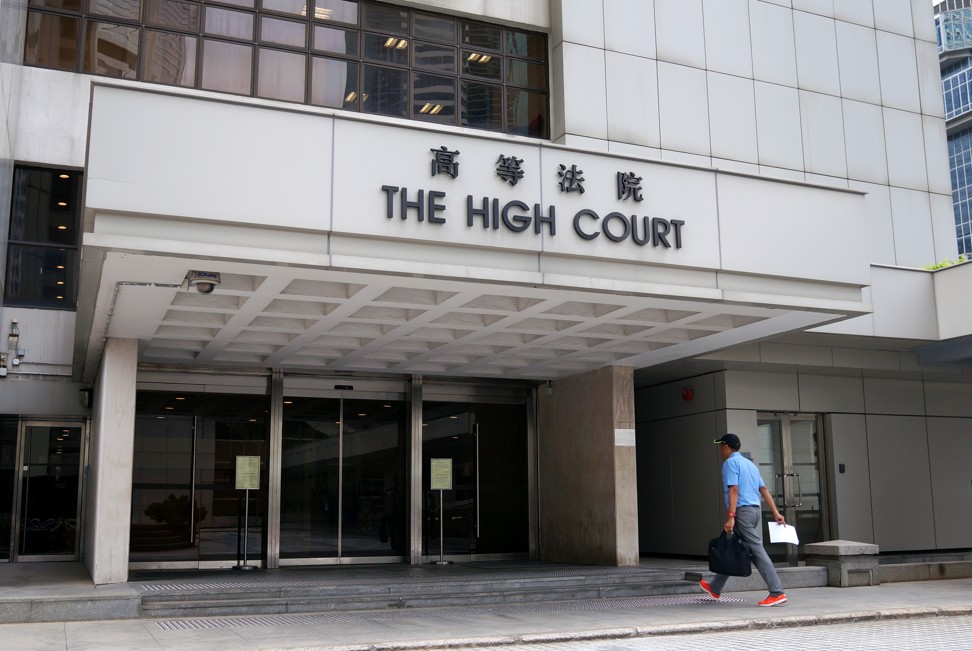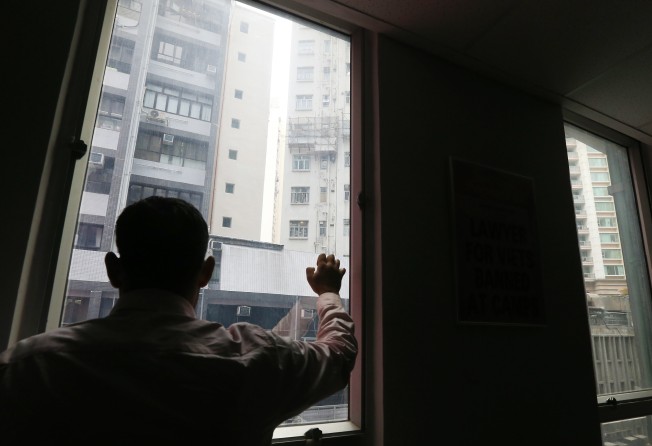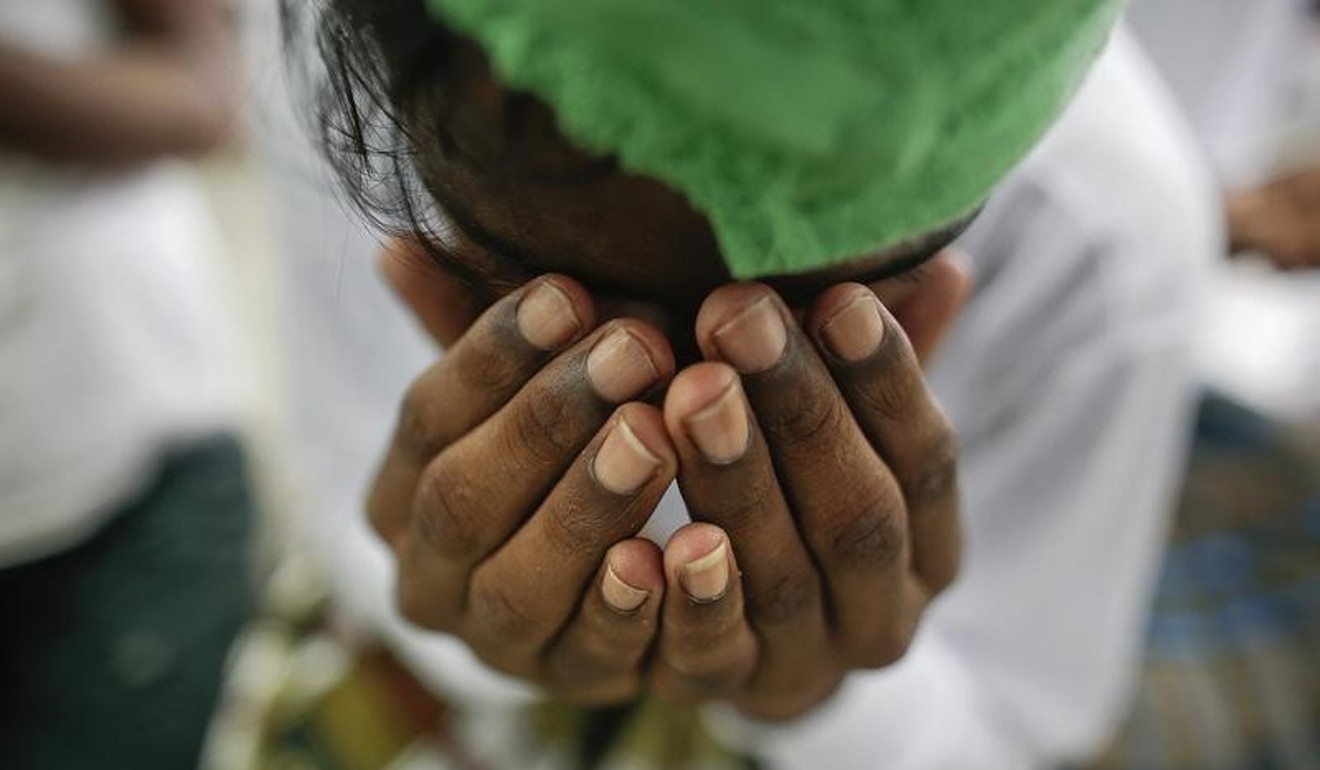
Forced labour must be criminalised in Hong Kong to protect thousands of ‘invisible’ victims, Raza Husain QC tells High Court
City’s first ever judicial review on human trafficking hears that perpetrators will remain free to exploit if offence not introduced

A barrister told Hong Kong’s High Court on Wednesday that thousands of victims of human trafficking, including the Pakistani man at the centre of his case, had gone unnoticed and even been prosecuted in the city, which does not treat forced labour as a crime.
Raza Husain QC, who has called for the criminalisation of the offence, noted that thousands of victims had been punished, mostly for immigration offences, when instead the city should have offered them protection.
“There are many people who remain invisible and not protected, and the perpetrators remain free,” he said.
The two-day appeal hearing related to Hong Kong’s first ever judicial review on human trafficking ended at the High Court on Wednesday.
It came after a Pakistani man won a legal battle against local authorities in December 2016. Zn, as he was referred to in court proceedings, worked in Hong Kong between 2007 and 2010 without being paid. He was beaten and threatened, and worked extremely long hours.

Zn later sued the Immigration Department, Hong Kong Police Force and the Labour Department for ignoring his claims that he was a victim of human trafficking.
High Court judge Kevin Zervos ruled in his favour in 2016, saying authorities had failed this forced labour victim and that the city had no specific legislation targeting the problem. The government appealed the decision.
Representing Zn, Husain argued that “there is a duty to criminalise trafficking in a bespoke or specific sense”. He noted that “the general law misses the point” and “the specificity” of the problem.
In the absence of anti-human-trafficking laws penalising labour trafficking and forced labour, advocates have criticised authorities for taking a piecemeal approach by using related charges.
“The law needs to have some remote connection with reality. The problem of patchwork is that someone needs to stick the parts together,” Husain said.
Mr Justice Andrew Cheung Kui-nung noted that this was the first case of human trafficking brought to the High Court and that more cases could bring different perspectives and considerations. Cheung said that things could be done “step by step”.
“Instead of having a specific law, I would think that it was first needed [to have] training and better coordination … How can we jump from not having an effective regime to ‘therefore the answer is to enact a specific offence’?” the judge asked.
There are many people who remain invisible and not protected, and the perpetrators remain free
Husain argued that “this is a right of first order”. He said that Europe did not wait to have different cases.
The lawyer insisted that such matters could not be dealt with only by administrative measures.
Husain also quoted a previous US State Department report on human trafficking, which noted that Hong Kong was not complying with international standards and that it had insufficient laws.
“There is a burden on the state to show what they are really doing,” Husain argued. He also suggested that victim identification and protection, proper punishment, prevention and general education on the matter needed to be introduced.
David Pannick QC, on behalf of the government, answered at the end of Husain’s intervention that his “case was not whether Zn was telling the truth but whether a credible case was being raised”.
He insisted that Hong Kong had no obligation to enact a specific criminal offence. “In the international experiences there are pros and cons of having or using a specific criminal offence in these cases,” he said.

“The government of Hong Kong says … that the best way of addressing the problem is to take administrative steps … give this matter a high profile at a high level,” Pannick noted.
Archana Kotecha, the Hong Kong-based head of the legal department at Liberty Asia, an anti-human-trafficking non-profit group, who followed the two-day hearing, said it was a very significant case that could lead to “more holistic trafficking efforts”.
Kotecha noted: “Whilst it is right there have been some administrative measures … there is no doubt that there is such a lack of clarity and lack of conceptual clarity around these offences and one does wonder how do you even successfully prosecute under a patchwork of legislation.”
“The advantage of having one offence is that it focuses the effort and it’s easier to understand and to act upon … If you look to the jurisdictions around us, they have all gone towards consolidating into a single offence as opposed to prosecuting under a patchwork of offences,” Kotecha said.
According to the International Labour Organisation, there are about 24.9 million people in forced labour around the world.